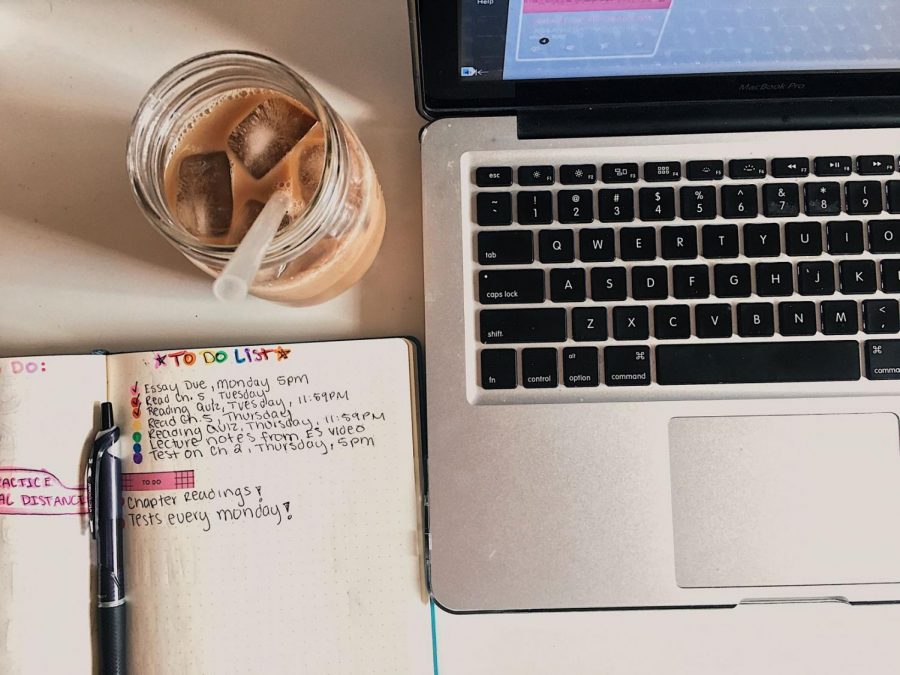Staying Productive As School Goes Online
March 25, 2020
The world as we know it is going through some changes. That includes how schools are handling the pandemic on a broad scale. Oregon State University is shifting to being fully online during the spring term. That means classes will be conducted in the same manner as ecampus classes, utilizing canvas to its full potential, alongside video chatting websites like Zoom. What this means for students is that they are practicing academic social distancing to level out the COVID-19 virus’ impact. Students will be spending the majority of their average classroom time in their homes, even in their bedrooms. Because this is a relatively confusing and difficult time for your average student, we’ve gathered some tips, credited to freelancers who work from home, that will help students create a healthy online education.
-
Make Time To Go Outside
According to an OregonLive article, which interviewed Paula Fasano Negele, a spokeswoman for the Oregon Office of Emergency Management, it’s actually healthy to go outside during this time. Locking yourself up in your house may seem like a good idea to avoid the virus, but it’s not good for your mental and physical health. Go for a walk, jog, or hike. Just make sure to avoid people outside of your family at a social distance of six feet. Also, avoid public works like playgrounds or drinking fountains which may contain contaminants.
-
Change Out Of Your Pajamas
This is an important aspect to create boundaries. Even if you don’t have to leave your house, getting into a clean outfit will help you adjust to your new routine. Plus, you can wear the pajamas again because they won’t be dirty.
-
Stay In Contact With Long-Distance Friends
A lot of college students are making the decision to go home to family during this time when we don’t really know how long we’ll be dealing with COVID-19. Even if you are staying in Corvallis, social distancing has made friendships long distance. But just because you can’t physically hang out with your friends doesn’t mean you can via the internet. Using websites like Zoom or Google Hangouts gives you the means to have lots of people in one chat. Like an online slumber party.
-
Clean Yourself and Your Environment
Feel like a hermit all you want but try to look like you are going to leave your house. Take a shower, put on clean clothes, do something fun with your hair. Find ways to create normalcy within your daily routine. Connected to this is clean the area in which you are working/living. Wash your dirty laundry, vacuum, take the dishes out of your room. Make your environment healthy so you’ll thrive.
-
Separate Work from Play
Where you do homework and where you chill may currently be the same place, but creating boundaries for those two will help you balance your responsibilities. Students are not encouraged to study on campus or at coffee shops, which means your room has to replace those areas. Try to only watch TikToks in bed and do homework and conference calls at your desk. If you don’t have a desk, find a table surface for your makeshift office.
-
Create A Daily Sleep Routine
You might find yourself waking up at 3 p.m. and then waking up at 10 a.m. the next day. In the first couple of days that might seem fun, but your body will begin to hate you. Try and create a daily routine that includes waking up and going to sleep at roughly the same time every day. You might have to adjust if your classes require Zoom video chats, but once school starts it’s important to maintain some type of norm.
-
Eat Healthily (or as healthy as you normally would)
Restaurants are closing down for the unforeseen future and for college students that means one thing: you have to start cooking three meals a day for yourself. Grocery stores are still going to be open throughout this time (the social distance number required) so you’ll have access to ingredients. Before you go to the store make a list of what you would eat in a specific length of time, which will help you from overshopping. According to a Time article, it is recommended that you try to avoid stress eating during this time (or over snacking in bed) by creating three meals a day that you can eat.
-
Make A To-Do List
It’s easy for a student who is normally an on-campus learner to adjust to online schooling. You don’t have a weekly in-person meeting with your professors (multiple times a week) who is able to remind you of assignments in class. That means you have to depend on canvas to have your assignments dated accurately. Another thing is to make daily or weekly to-do lists. Write out your whole week day-by-day with the assignments you have to do. Put in study times, give yourself extra time before the official due date to work on assignments, and manage time for group projects. To-do lists can be a validating tool because you can check off things one by one and feel more productive.
-
Start Something New
Online classes will give you extra time to pick up a new hobby! Or restart one you had to put away. Get back into reading books as you did in high school. Learn how to draw comics. Start going on runs. This gives you time to relax your mind outside of classes that can help you escape what is currently happening in the world.
-
Learn To Make Your Coffee (or Tea) Order At Home
This is for the students who get coffee from cafes on or around campus before class. We’re talking the tall iced coffee fiends who refresh their day with that caffeine plug! Because we are practicing social distancing under COVID-19 preventions, you can’t hit up your regular coffee shop. However, you can tackle the project of learning to make your order at home. There are thousands of online recipes for you to choose from and you can adjust them based on how you like the drink. It’ll also save you roughly $5 a day!
Hopefully, these ten tips and tricks will help you adjust to online schooling and the upcoming months of uncertainty we will be dealing with!







